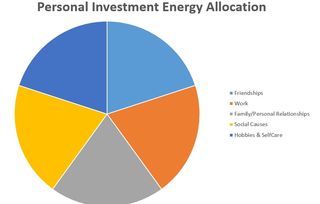By
David J. Ley Ph.D.
Are you tired of reading the news or social media and feeling those outrage buttons getting pushed? “How could this happen?” “How can they do this?” “Now they’re targeting us/them?” “Those poor people, this isn’t right!” Are you exhausted by the feeling that there are too many battles, too many catastrophes, too many problems, and you can’t muster enough energy to deal with them all? You’re not alone.

Outrage fatigue is a feeling of exhaustion and apathy that can result from months of political scandals, violence, and other events that cause outrage
There may seem to be a hundred news articles on any one day to make our blood boil. These days, the speed at which news spreads, coupled with the seemingly never-ending parade of outrages resulting from our political climate, our never-ending war in the Middle East, and a host of other issues, all come together to create an overwhelming daily environment that can cause even the most devoted among us to consider hiding for the duration of the conflict. The phenomenon already has been named: outrage fatigue syndrome. I would argue that it’s very real, however, and has been around for as long as people have done terrible things to other people on a regular basis. The real consequence of outrage fatigue is that many of us simply stop engaging with big issues at all in order to focus on just getting by — which is how the less scrupulous among us are able to get away with their agendas. Caring people get inundated with awful things, understandably check out, and leave the bad actors unaccountable.
“Compassion fatigue is a state experienced by those helping people or animals in distress; it is an extreme state of tension and preoccupation with the suffering of those being helped to the degree that it can create a secondary traumatic stress for the helper.” — Dr. Charles Figley
Outrage fatigue is a related experience, where one experiences exhaustion, cynicism, apathy, and hopelessness, as they try to take on too many social, political, legal, or economic campaigns at once. Today’s world of social media and constantly connected smartphones offers us the opportunity to express our feelings about a huge range of issues, from police violence towards African-Americans to hyperbolically bad governmental decisions to the never-ending efforts to reform/repeal/replace health care.
Every one of these issues, and more, is worthy of upset and outrage. Each demands attention and response. But each response requires us to muster our resources, determine what level of investment and response we need to give to it. Do we merely choose a “sad face” reaction to the story on Facebook? Do we share it with others? Do we reach out to people who aren’t involved in it and implore that they become involved? Do we pick up the phone and call political representatives and register our feelings? Do we donate money to a cause? Do we go out on the street and protest? And do we do this for one day, or do we hang onto these feelings until the issue is resolved?
There’s also the problem of the “ceiling effect.” When we’ve reached what feels like our maximum level of outrage at one issue, and then another one comes along which feels even worse, how do we go past the 10 on the outrage dial? (There’s no 11…) Picking and choosing between the things we are outraged by can start to feel impossible.
Some people seem able to keep their outrage meter at 10 all day long and thrive on maintaining incredibly high levels of engagement, connectedness, and response.
But I, and many of my patients, friends, and colleagues, find ourselves running thin. I’m hearing more patients coming in and reporting they’ve had to stop watching the news as their levels of stress have become unmanageable. More couples who are having to make agreements not to talk about politics before bed. More groups of friends who get together and say “no politics, advocacy, or outrage at dinner please.” I’m seeing more people leave social media, reporting that they are just overwhelmed by the constant flood of issues that demand their attention and emotional reactions. The pile of things on our outrage list just keeps growing, and none of them ever really seem to come off the list or get resolved, so we can devote attention to new issues. So people are having to start making choices.
“[It’s] frustrating to have to mobilize every couple months to keep our leaders from inflicting real human suffering on our constituents.” — Barack Obama
“If you’re not outraged, you’re not paying attention,” reads the slogan I see often on bumper stickers.“I was outraged, now I’m a little tired and struggling with apathy,” is the bumper sticker I think I’d like.
Humanity can’t afford that if we want to prevent economic catastrophe or a dictatorship. How can we overcome tiredness and the desire to avoid our hardest realities?
Recently, I’ve been thinking about this for myself and many friends. I’ve talked to folks more experienced than me, and the consensus is self-care first, then local and up.
How to deal with your outrage fatigue? Here are a few suggestions and strategies:
Values Sort Your Causes
- Sit down and think about what are the issues you care about the most. What are your big-ticket items? Climate change? Healthcare? Police violence? Gender equity? Ending racism? Politics? Write down a list of the things you get justifiably worked up about.
- Now, go through that list and rank them by how much you care about them. They can’t all be at 11 on the outrage dial. Which are the ones you care about the most?
- Now, rank them by how much time you are spending a day, thinking about or worrying about the issue.
- Finally, go through again and this time, rank them by how much you believe your contribution can make a difference. (For instance, unless you are a legislator, federal investigator, etc., each of us as individual citizens can make little individual impact on the current President’s actions. In the aggregate, sure, our individual actions are important and add up. But this exercise is about your individual investment).
- Now, compare these various rankings. What do you see? You can use this form of values sorting to try to identify what your most important interests or causes are and try to match your values to your behavior and choices.
Allocate Your Resources (and Time): Imagine that you have limited time, energy, and emotional resources. You have to distribute them across your life. How do you do so? Most of us do so unconsciously and in a reactive way. That’s a great recipe for exhaustion, compassion fatigue, outrage fatigue, cynicism, and apathy. So, it’s probably time to take another look at those allocations. If you have, say, 100 points of Personal Investment Energy, where are you going to put them on this graph, between Family/Relationships, Work, Hobbies/Self-care, Social Causes, Friends… (You might need your own graph, listing the things in your life)? It would be nice if work only took its reasonable share, but we all know it doesn’t. And you can’t skimp on your self-care – That’s how burn-out happens!

Source: David Ley
Following Your Values: Use the lists and sorting you did above to guide the issues you choose to invest in. A cause or issue which is at the top of all of the lists should be the one you choose to focus on and to spend most time responding to. If you’re giving lots of energy to things that you have little ability to change, or that you don’t care as much about, you need to look at why and how that’s happening. Look at your social media settings, and your news media consumption habits. Look at your schedule, and where you are spending time and energy. Does it feed your values, or distract from them? Are you using media in a mindful way?
Support Others Supporting Other Causes: I know it might feel like you’re giving up if you decide to back away from or stop investing in a cause or action. But if you are supporting your friends and peers who have that issue at the top of their list, then you can tag-team the issues. They can support you in advocating for this one, while you cheer them on as they pursue change on another necessary social change.
Don’t Judge People for Managing their Outrage (Or Not Having Your Issue on the Top of their List): Social change is a marathon. Not a sprint. Or perhaps it could be a relay race, where we hand batons off when we start to get tired and need to recharge. Regardless, if you find yourself upset with other people who tell you they are “checking out” of the discussion, try to remember that not everyone put this particular issue on the top of their list.
Self-care is logging out of Facebook, Twitter, etc. and leaving your phone behind. Get outside and walk. Spend time with friends. Nap. Read a book. Do something you enjoy without the Internet or a newspaper for a bit. Do this often. You needn’t follow every breaking news story.
When ready, listen again but focus. Choose a few (or one) issues that matter to you and you can help change. Trust that the other several billion individuals in the world can tackle everything else, especially what they know better or experience more directly.
Think local. We have the most power to accomplish good locally in our hearts, homes, and communities. Whether that means volunteering for community improvement, youth advocacy programs, shelters, job training, mentorship, or local politics (donating time, money, energy, ideas, or oneself as a candidate).
No matter your political ideology, physical ability, or income level, I believe we all have something to give our communities beyond being taxpayers.
Reconnecting with our neighborhoods, municipal governments, and local outreach programs would help re-humanize those we may otherwise disregard or portray unduly broadly. Keeping sane in an ever-changing and overwhelming environment can be as simple as cleaning up a park or tutoring a child for an hour a week.
We all have to remember that social and political changes take time, take momentum, require commitment, and that, sometimes, important issues can be lost if we get distracted by every shiny, new object or social cause that comes along. They’re all important. That’s the point. But so are you.